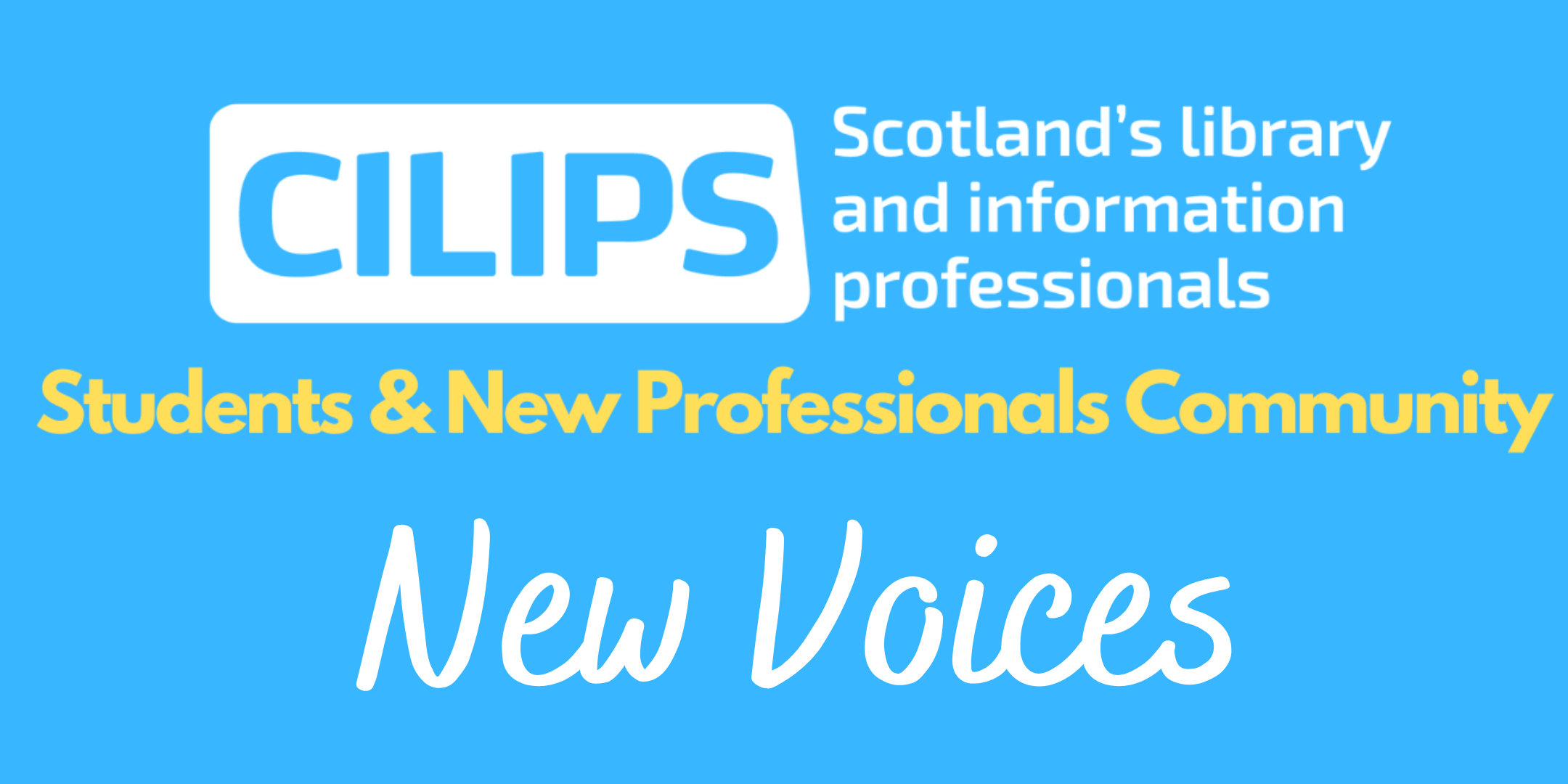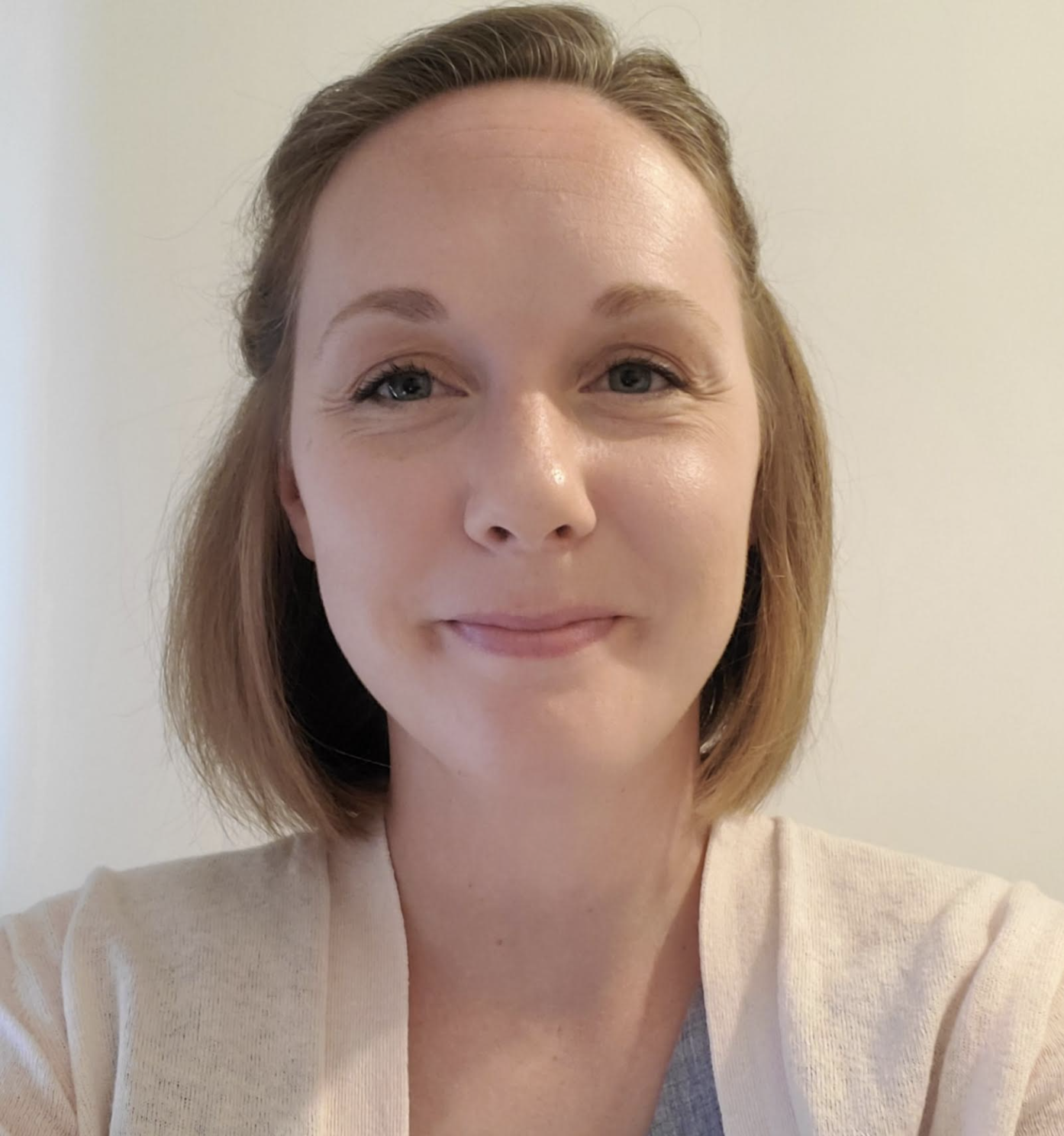New Voices RGU Student Series 2024 – Kelsey Landes
Category: Blog, New Voices, RGU Student Series 2024

In the 2024 Student Series for the New Voices blog, CILIPS Students & New Professionals Community will be sharing the views of Robert Gordon University students from the MSc in Information and Library Studies.
With special thanks to Dr Konstantina Martzoukou, Teaching Excellence Fellow and Associate Professor, for organising these thought-provoking contributions.

Author Kelsey Landes (BA Social Work, MSc Nursing) is an American registered nurse living and working in London for the NHS at UCLH. She is passionate about empowering the healthcare workforce through high-quality information and education. Prior to pursuing her lifelong dream of librarianship, Kelsey studied and worked in the field of health and social care for more than a decade.
GenAI, Information Professionals and Nursing Education: An Opportunity for Collaboration
As education and healthcare continue to advance technologically, information professionals must support digital and generative artificial intelligence (GenAI) literacy skill-building in the context of higher education, and the opportunity to do so specifically within nursing education could not be more exciting. The Chartered Institute of Library and Information Professionals describes information and digital literacy in higher education as encompassing critical thinking, knowledge development, subject competence, and research skills, as well as transferable skills related to employability and understanding of plagiarism (CILIP Information Literacy Group 2018). With the invention and integration of new technology like GenAI into an already highly digitally driven healthcare environment, information professionals can support the success of student nurses through strong digital literacy skills.
A promising means of leveraging this opportunity lies in collaboration between university information professionals and nurse educators. This collaboration could involve university librarians and nursing lecturers co-creating an information, digital and GenAI literacy curriculum that is embedded into existing nursing modules (Brown et al. 2020). Lokmic-Tomkins et al. (2021) provide a roadmap for such a collaboration between nursing faculty, library and academic skills services. This type of curriculum could be tactfully embedded into core nursing informatics or evidence-based practice research modules.
Another potential collaboration could occur through embedded librarianship in a school of nursing or health studies. Franken and Sharkey (2021) describe a case study of embedded librarianship at a U.S. public university in an undergraduate nursing module on evidence-based practice (EBP) research and theory. A designated “nursing librarian” functioned as a teaching partner to nursing faculty in the design, teaching and evaluation of the EBP class. Results of the case study show the efficacy of the embedded librarianship model in improving nursing students’ information literacy skills (Franken and Sharkey 2021). GenAI literacy skill-building could also be integrated into this type of collaboration.
There are many opportunities for the useful application of GenAI in nursing education, such as clinical laboratory simulation activities, interaction with virtual patients to develop communication skills, and plagiarism detection, among others. An innovative application of GenAI in nursing education would be in simulation exercises to strengthen students’ relational communication skills (O’Connor et al. 2023). This may require information professionals to create a primer for nurse educators on prompting GenAI. Challenges of using GenAI in nursing education include the potential for bias, reduced human interaction, and health data privacy concerns. However, even weaknesses of GenAI could be harnessed into learning opportunities. For instance, a GenAI tool to detect skin cancer that has been trained using only images of light-skinned people could be used as a case study to highlight bias in healthcare and limitations of artificial intelligence (O’Connor et al. 2023).
Information professionals have a responsibility to build their own digital literacy with GenAI in order to provide resources and instruction to students and faculty on its ethical use, benefits, and challenges. An obvious duty of information professionals is to instruct students and colleagues on the proper referencing of GenAI and university plagiarism standards related to GenAI use. Information professionals could also provide instructional materials to teaching faculty on leveraging GenAI to reduce educator workload, accelerate feedback/evaluation, and personalize learning (Liu et al. 2023).
In conclusion, as society, education and healthcare continue to advance and digitize, a commitment to continuous learning, communication and collaboration are key. The nursing and information professions share a deep dedication to supporting the wellbeing of individuals and communities. Together, these trusted professionals can empower the next wave of highly information-literate nurses.
References
BROWN, J. et al., 2020. Student nurses’ digital literacy levels: lessons for curricula. CIN: Computers, Informatics, Nursing, 38(9), pp. 451-458.
CILIP INFORMATION LITERACY GROUP, 2018. CILIP definition of information literacy 2018. [online]. London: Chartered Institute of Library and Information Professionals. Available from: https://infolit.org.uk/ILdefinitionCILIP2018.pdf [Accessed 30 November 2023].
FRANZEN, S.R. and SHARKEY, J., 2021. Impact of embedded librarianship on undergraduate nursing students’ information skills. Journal of the Medical Library Association, 109(2), pp. 311-316.
LIU, J. et al., 2023. The application of chat generative pre-trained transformer in nursing education. Nursing Outlook, 71, pp. 1-5. Available from: https://doi.org/10.1016/j.outlook.2023.102064 [Accessed 26 November 2023].
LOKMIC-TOMKINS, Z. et al., 2021. An interdisciplinary partnership approach to improving the digital literacy skills of nursing students to become digitally fluent, work-ready graduates. In: M. HONEY et al., eds. Studies in Health Technology and Informatics: Nurses and Midwives in the Digital Age – Selected Papers, Posters and Panels from the 15th International Congress in Nursing Informatics. 23 August-2 September 2021. Amsterdam: IOS Press. pp. 103-107.
O’CONNOR, S. et al., 2023. Artificial intelligence in nursing education 1: strengths and weaknesses. Nursing Times, 119(10), pp. 1-4. Available from: https://www.nursingtimes.net/roles/nurse-educators/artificial-intelligence-in-nursing-education-1-strengths-and-weaknesses-11-09-2023/ [Accessed 26 November 2023].